Hypothyroidism is a medical term used to suggest that your thyroid glands are underactive and do not produce enough thyroid hormone. Although it is a common disorder, it can be quite tricky to manage. The reason is that what you eat will have an impact on your treatment for underactive thyroid disease. Certain nutrients have the power to affect the function of your thyroid gland, whereas some foods will affect the way your body absorb the replacement hormones you take to treat your disorder. It is therefore important to pay attention to your diet with hypothyroidism.
10 Types of Foods to Avoid with Hypothyroidism
While there is no specific "hypothyroidism diet", you can certainly make some subtle changes to what you eat to manage your condition in a much better way.
1. 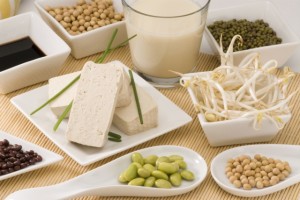 Non-Fermented Soy Foods
Non-Fermented Soy Foods
You should avoid soy burgers, tofu, soymilk, and other non-fermented soy foods because they have isoflavones, which have estrogen-like activity in your body. They can interfere with thyroid function and are therefore on the list of foods to avoid when you have underactive thyroid disease.
2. 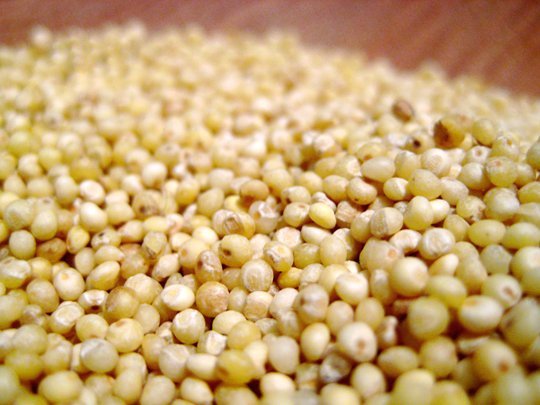 Millet
Millet
You have to avoid this nutritious, gluten-free grain mainly because it contains isoflavones or goitrogens. These substances can slow down the production of thyroid hormone. Some people even develop enlarged thyroid (goiter) due to insufficient thyroid in the body.
3. Cruciferous Vegetables
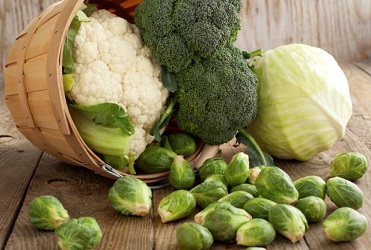 Cauliflower, broccoli, kale, cabbage, radishes, Brussels sprouts, collard greens, turnips, and other cruciferous vegetables are among the foods to avoid with hypothyroidism. These are goitrogenic veggies and can lead to goiter. By making it difficult for your body to make use of iodine, these veggies will slow down the function of the thyroid gland.
Cauliflower, broccoli, kale, cabbage, radishes, Brussels sprouts, collard greens, turnips, and other cruciferous vegetables are among the foods to avoid with hypothyroidism. These are goitrogenic veggies and can lead to goiter. By making it difficult for your body to make use of iodine, these veggies will slow down the function of the thyroid gland.
4. Fatty Foods
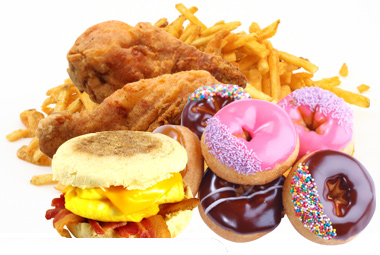 If you are taking thyroid hormone replacement medicines, you should avoid fatty foods because fats can affect your body's ability to absorb those medicines. They may also affect the normal function of your thyroid gland. Therefore, it is a good idea to avoid all fried foods and limit use of foods such as mayonnaise, butter, margarine, and fatty cuts of meat.
If you are taking thyroid hormone replacement medicines, you should avoid fatty foods because fats can affect your body's ability to absorb those medicines. They may also affect the normal function of your thyroid gland. Therefore, it is a good idea to avoid all fried foods and limit use of foods such as mayonnaise, butter, margarine, and fatty cuts of meat.
5. Excessive Fiber
 Keep a close eye on your fiber intake because too much of it can make your thyroid treatment less effective. You should take 20-35g of fiber a day from dietary sources, such as vegetables, whole grains, legumes, beans, fruits, and whole grains. But don't go over that limit. You may even need to take a higher dose of your thyroid medication if you are on a high-fiber diet. Talk to your doctor before making any changes to your treatment plan.
Keep a close eye on your fiber intake because too much of it can make your thyroid treatment less effective. You should take 20-35g of fiber a day from dietary sources, such as vegetables, whole grains, legumes, beans, fruits, and whole grains. But don't go over that limit. You may even need to take a higher dose of your thyroid medication if you are on a high-fiber diet. Talk to your doctor before making any changes to your treatment plan.
6. Processed Foods
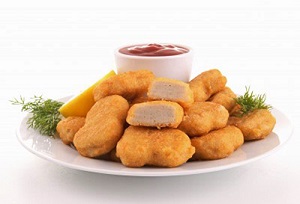 Processed foods are among foods to avoid with hypothyroidism because they are loaded with sodium. If you have an underactive thyroid, you are already at a greater risk of developing hypertension. You will increase that risk if you continue to eat processed foods loaded with sodium. If you really want to eat processed foods, be sure to check the packaging and select low-sodium alternatives. Make sure to keep your sodium intake lower than 1,500mg a day.
Processed foods are among foods to avoid with hypothyroidism because they are loaded with sodium. If you have an underactive thyroid, you are already at a greater risk of developing hypertension. You will increase that risk if you continue to eat processed foods loaded with sodium. If you really want to eat processed foods, be sure to check the packaging and select low-sodium alternatives. Make sure to keep your sodium intake lower than 1,500mg a day.
7.  Coffee
Coffee
You should avoid coffee and other caffeinated beverages because they can reduce your body's ability to absorb thyroid hormone replacement. This will make your hypothyroidism treatment less effective. Avoid coffee and always take your medication with water.
8. Alcohol
 It is important to stop drinking alcohol when you have hypothyroidism. Not only does it affect the function of your thyroid gland, it also makes your thyroid treatment less effective. It has a toxic effect on your thyroid gland and makes it difficult for your body to use whatever thyroid hormone is there in the system. It is therefore important to cut out alcohol completely if you have issues related to thyroid.
It is important to stop drinking alcohol when you have hypothyroidism. Not only does it affect the function of your thyroid gland, it also makes your thyroid treatment less effective. It has a toxic effect on your thyroid gland and makes it difficult for your body to use whatever thyroid hormone is there in the system. It is therefore important to cut out alcohol completely if you have issues related to thyroid.
9. Gluten Foods
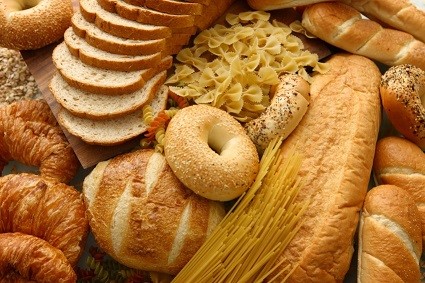 These are among the foods to avoid with hypothyroidism because they slow down the production of thyroid hormones. You should consider limiting the consumption of veggies like broccoli, cabbage, Brussels sprouts, cauliflower, etc. to manage your condition better. You should also eat rye, wheat, and barely in moderation to avoid complications.
These are among the foods to avoid with hypothyroidism because they slow down the production of thyroid hormones. You should consider limiting the consumption of veggies like broccoli, cabbage, Brussels sprouts, cauliflower, etc. to manage your condition better. You should also eat rye, wheat, and barely in moderation to avoid complications.
10. Starchy Foods
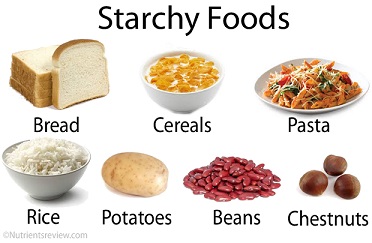 You have to avoid foods that contain refined sugars and starches because they will lead to weight gain and inhibit the production of thyroid hormones. So, avoid cakes, white bread, pastries, baked potatoes, and other starchy foods to avoid dealing with thyroid complications.
You have to avoid foods that contain refined sugars and starches because they will lead to weight gain and inhibit the production of thyroid hormones. So, avoid cakes, white bread, pastries, baked potatoes, and other starchy foods to avoid dealing with thyroid complications.
Diet Plans for Hypothyroidism
With knowledge about foods to avoid with hypothyroidism, you will be in a better position to make diet plans for yourself. All you have to do is make some sensible choices. You can definitely choose to be a vegetarian, but you need to avoid allergy-causing ingredients. When making diet plans, be sure to include nutrient-rich foods in your list. For instance:
- Include antioxidant-rich veggies and fruits in your diet. Some of the great choices are bell peppers, tomatoes, blueberries, etc.
- Eat food high in B vitamins. Options like whole grains and other similar foods will help improve the function of your thyroid.
- Include food rich in selenium to improve levels of thyroid in your body. These foods help because your body needs selenium, to make thyroid hormones. Some of the best options include Brazil nuts and sunflower seeds.
- Enjoy food rich in tyrosine. The thyroid gland uses this amino acid to produce T3 and T4. You can also find supplements containing tyrosine for the treatment of your underactive thyroid gland.
